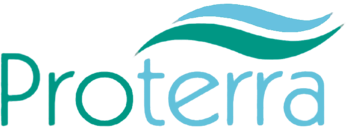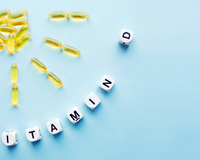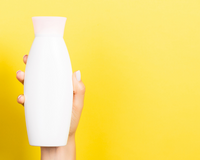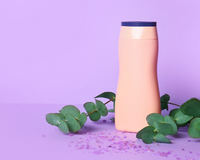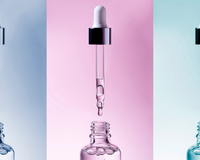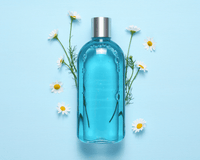Protein Treatment For Hair
Protein treatment for hair particularly for damaged hair, provide a number of advantages. Treatments may help restore the health of hair that has been damaged by chemical treatments or heat-radiating instruments. Keratin protein is the primary constituent of our hair. It's keratin that maintains it all of those things. The keratin in our hair breaks down as a result of environmental, treatment, and style damage. Keratin is a mending and strengthening agent. Keratin protein is added to your hair as part of a protein treatment. In particular for hair that is damaged, protein treatments provide a wide range of advantages. Hair that has been chemically or heat-treated might benefit from protein treatments to help restore its health.
- Tones and nourishes hair
- A reduction in the amount of frizz
- Curls are defined and volume is added.
- Hair cuticle is smoothed, and luster is increased.
- Hair grows faster and is more flexible as a result of this treatment.
Your hair may be lacking in protein if it is unable to hold its tresses for an extended period of time or if the tresses are excessively loose and limp. Try this test to see whether your hair is pliable: Take a strand of hair between your thumbs and forefingers and draw it back to see whether it has any flexibility. A healthy head of hair may grow to roughly a third of its original length before returning to its previous size. Hair that has been damaged or dried to a brittle state may not be able to regain its normal size, and this may lead to breakage when stretched.
Protein Treatment For Hair Process
Moisture is needed if your hair is breaking easily. If he yawns a lot, he's deficient in protein. For the most part, hair with fewer pores prefers less protein, whereas hair with more pores needs more protein. Rinse your hair with rice water and see whether it works. As a protein substitute, rice water is an excellent choice. It's likely that your hair requires protein if it's resistant to rinse.
But don't be fooled by this test and think that rice water has the same impact as protein conditioning and will have the same positive effects on your hair. Rice water simply resembles protein, not protein itself. ' Keratin accounts for 95% of hair's composition. Keratin is find in the skin, hair, nails, and other parts of the body. Appendages are make up of a protein with a fibrous, helix-shape structure. Keratin is a protein creating by keratinocytes that is water-insoluble and serves as a protective coating for the hair shaft. Cysteine is especially abundant in keratin, giving it its stiffness and resilience via the formation of molecule-to-molecule connections.
The lack of flexibility in your hair is a clear indicator that your hair is in need of protein. To see whether your hair is elastic, perform the following: Gentle pull back just one little portion of your hair is all it takes to get an elegant look. Hair may need a protein therapy if stretching the strand does not result in it returning to its original form, or worse, if the strand breaks. Protein supplements may necessary if your hair has been dyed excessively. Hair that has dying is more porous and prone to damage than hair that has been left natural. Colored hair may strengthening and maintaining with a protein treatment.
Protein Treatment For Hair Procedure
Hair loss of up to 100 strands a day is very normal and healthy. Hair loss may also be an indication that your hair is deficient in protein. If you want stronger hair, you may have to use protein treatments. Another clue that you might benefit from a protein increase is if you have this sort of hair. Hair that has been supplementing with protein will seem healthier and more vibrant. You can detect whether or not your hair is porous by looking at it.
A little dish of water with a lock of your hair in it is all you need. Ingrown hairs have a lot of open pores. The hair strands may be more fragile if there are holes and rips in the fabric. Hair with a lot of water absorption is prone to tangling, frizzing, and electrification. Hair with porous follicles may benefit from a protein therapy, which fills up the holes.
Using these therapies excessively might have negative effects. Dry, brittle, and rough hair may result from overdosing on protein. To find out how frequently you should use the protein treatment, speak with your stylist. There are several ways in which malnutrition harms a person's health. Hair loss is one of these consequences. Fatigue, weakness, and various disorders may result from a lack of protein in the body. Although it is true that those who eat the correct meals and pay attention to their protein intake will not have any issues, this is not always the case. Unfortunately, the complicated structure of large cities, the resulting workflow, and other variables lead to a lack of concern for one's own health, resulting in protein depletion.
Protein Treatment For Hair Treatment
As crucial as understanding which protein the hair requires is knowing which protein the hair produces. If you don't receive the correct protein, your hair may not obtain the health it needs. What kind of protein is best for hair? It is correct to refer to arginine protein as amino acid and the basic building block of other amino acids as well. Products like red meat and chicken are the primary sources of this protein; eggs and dairy products are also good sources. As well as coming from food, arginine protein may make in a laboratory setting, as well.
Arginine protein, which is a kind of amino acid, is essential for gaining volume and creating power balance in weak hair. This protein deficiency is a major contributor to the shedding issues that some individuals experience from time to time in their hair. Finally, the issue will resolve as soon as the defect is rectified.
People who engage in strenuous physical activity benefit greatly from the protein arginine, which has show to very beneficial in the prevention of hair loss.
